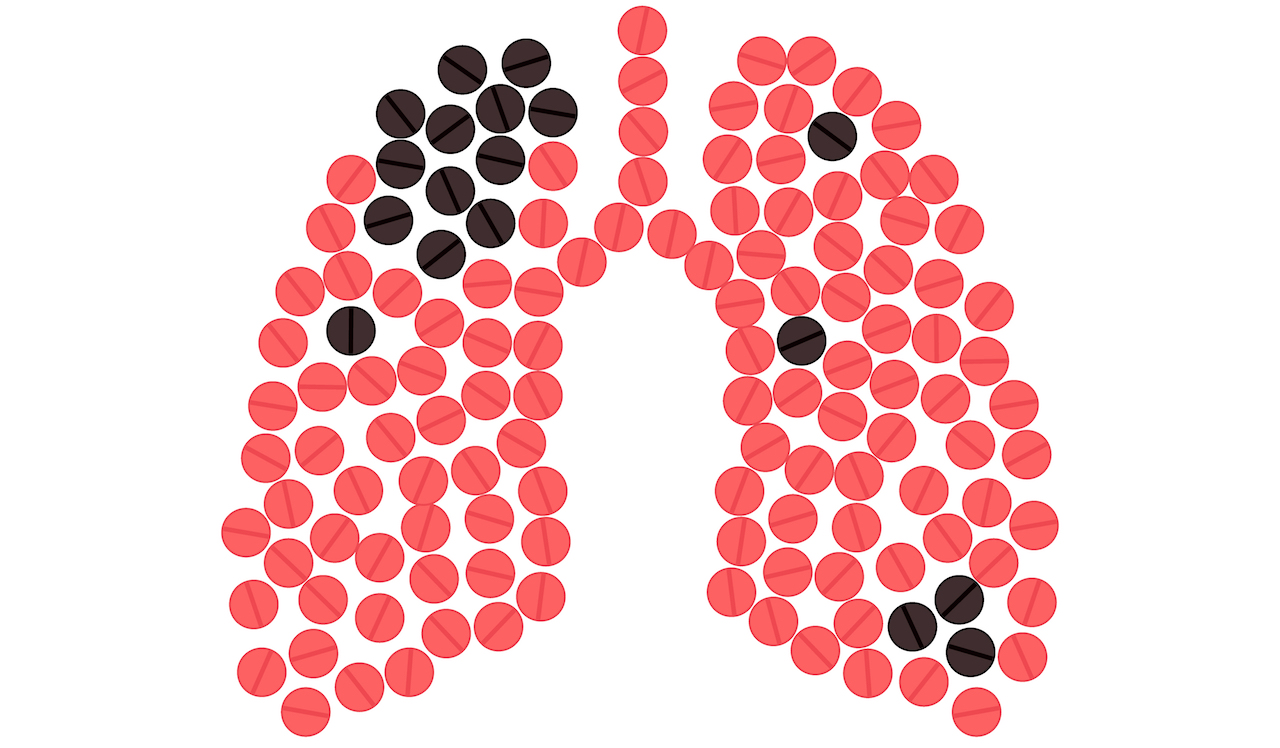Tuberculosis (TB) is a chronic infectious disease caused by a bacterium called mycobacterium tuberculosis. It usually manifests and destroys parts of the lungs, making it difficult to breathe, but can also spread to and attack the bones, joints and nervous system.
TB bacteria can live in the body for years without any symptoms or spreading to others.
How TB is spread
TB travels through the air. When a person with TB of the lungs or throat coughs, sneezes, or talks, droplets of the TB bacteria are released into the air. People nearby may breathe in these bacteria and become infected.
Signs and symptoms of TB include
- Persistent cough lasting longer than two weeks.
- Night sweats.
- Chest pain.
- Weakness and fatigue.
- Poor appetite.
- Rapid weight loss.
Treatment
Successful treatment takes at least six months, and medication must be taken exactly as prescribed. Incomplete treatment or not following a consistent program may cause you to develop drug-resistant strains of TB, which could be extremely difficult to cure, and even fatal.
Patients are put on a course of treatment for six to eight months as soon as TB is diagnosed. You will then receive tablets, and in some cases, injections for the first two months of treatment.
The treatment is also known as DOTS (Daily Observed Treatment Short course). The tablets have to be taken under supervision to guarantee regular and effective therapy.
Patients usually respond well to treatment and can soon return to work and live relatively normally again.
Good to know
- Stay on track with all your medical appointments.
- Take your medicines as prescribed.
- Report any side-effects of your medication. If you plan to move during the time that you’re being treated, let your doctor know so that arrangements can be made for you to continue the treatment.
- Healthy eating and exercise will keep your immune system strong and help to prevent TB, and help you to recover faster.
- During treatment, eat healthy foods and get enough sleep.
- Aim for at least 30 minutes of exercise a day to help your body fight off the infection.
Keep safe
- Don’t spend long periods in stuffy, enclosed rooms with anyone who has active TB until that person has been treated for at least two weeks.
- Use protective measures, like face masks, if you work in a facility that cares for people who have untreated TB.
- If you live with someone who has active TB, help and encourage the person to follow treatment instructions.
- Cover your mouth when you sneeze or cough so as not to infect your family. Oranges, bananas and garlic are helpful in easing symptoms as they inhibit bacterial growth and boost your immune system.
References:

